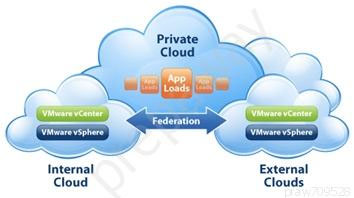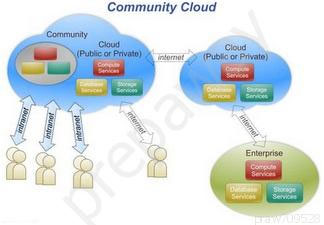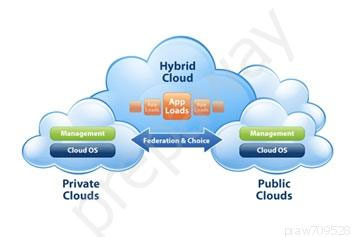Which Cloud Deployment Model Operates Solely for an Organization?
Question
Which of the following cloud deployment model operates solely for an organization?
Answers
Explanations
Click on the arrows to vote for the correct answer
A. B. C. D.A.
In Private cloud, the cloud infrastructure is provisioned for exclusive use by a single organization comprising multiple consumers (e.g., business units)
It may be owned, managed, and operated by the organization, a third party, or some combination of them, and it may exist on or off premises.
For your exam you should know below information about Cloud Computing deployment models: Private cloud - The cloud infrastructure is provisioned for exclusive use by a single organization comprising multiple consumers (e.g., business units)
It may be owned, managed, and operated by the organization, a third party, or some combination of them, and it may exist on or off premises.
Private Cloud -

Community Cloud - The cloud infrastructure is provisioned for exclusive use by a specific community of consumers from organizations that have shared concerns (e.g., mission, security requirements, policy, and compliance considerations)
It may be owned, managed, and operated by one or more of the organizations in the community, a third party, or some combination of them, and it may exist on or off premises.
Community Cloud -

Public Cloud - The cloud infrastructure is provisioned for open use by the general public.
It may be owned, managed, and operated by a business, academic, or government organization, or some combination of them.
It exists on the premises of the cloud provider.
Public Cloud -

Hybrid cloud - The cloud infrastructure is a composition of two or more distinct cloud infrastructures (private, community, or public) that remain unique entities, but are bound together by standardized or proprietary technology that enables data and application portability (e.g., cloud bursting for load balancing between clouds) hybrid cloud The following answers are incorrect: Community cloud - The cloud infrastructure is provisioned for exclusive use by a specific community of consumers from organizations that have shared concerns (e.g., mission, security requirements, policy, and compliance considerations)
It may be owned, managed, and operated by one or more of the organizations in the community, a third party, or some combination of them, and it may exist on or off premises.
Public cloud - The cloud infrastructure is provisioned for open use by the general public.
It may be owned, managed, and operated by a business, academic, or government organization, or some combination of them.
It exists on the premises of the cloud provider.
Hybrid cloud - The cloud infrastructure is a composition of two or more distinct cloud infrastructures (private, community, or public) that remain unique entities, but are bound together by standardized or proprietary technology that enables data and application portability (e.g., cloud bursting for load balancing between clouds) Reference: CISA review manual 2014 page number 102 Official ISC2 guide to CISSP 3rd edition Page number 689 and 690
The correct answer is A. Private Cloud.
Explanation: Cloud deployment models are categorized based on who has access to the cloud infrastructure and who manages it. The following are the four main cloud deployment models:
Private Cloud: It is a cloud environment that is solely dedicated to a single organization. In a private cloud, the infrastructure, platform, or software services are operated solely for the benefit of a single organization. This deployment model provides the organization with complete control over the cloud infrastructure, allowing for customization and enhanced security. It is often used by organizations that have sensitive data or mission-critical applications.
Community Cloud: It is a cloud infrastructure shared by several organizations that share similar security, privacy, and regulatory requirements. In a community cloud, the infrastructure is shared by several organizations, allowing them to reduce costs while still maintaining a high level of security and compliance.
Public Cloud: It is a cloud infrastructure that is owned and operated by a third-party provider and available to the public. Public clouds are often used for non-sensitive applications, where cost and scalability are the primary concerns.
Hybrid Cloud: It is a combination of two or more cloud deployment models (private, community, or public) that remain distinct entities but are connected by a standardized technology. The hybrid cloud provides greater flexibility to organizations, allowing them to keep sensitive data on private clouds and non-sensitive data on public clouds.
Therefore, the correct answer is A. Private Cloud, as it operates solely for the benefit of a single organization.